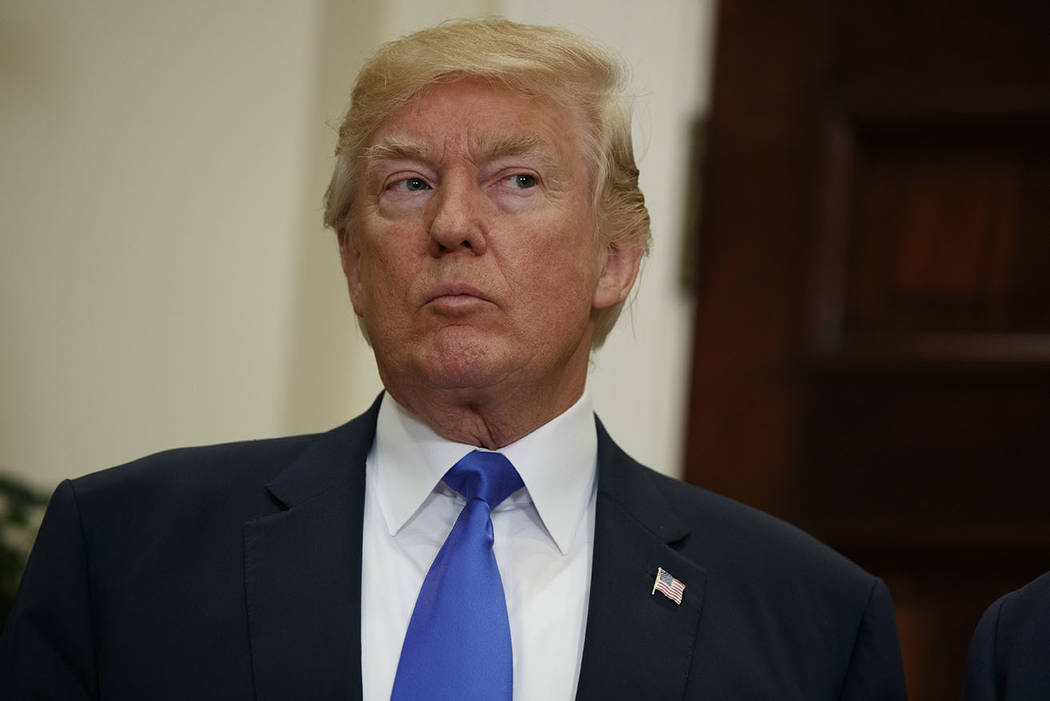Immigration change could hurt Las Vegas business, advocates say
Las Vegas businesses would be strapped for employees if proposed federal legislation to revamp legal immigration were to pass, local advocates say.
“I don’t think we could cover the needs of the Las Vegas economy solely on citizens that live here,” said Martha Menendez, an immigration attorney with the City University of New York Citizenship Now’s Las Vegas office.
The Reforming American Immigration for a Strong Economy, or RAISE Act, would change immigration to a points-based system relying on applicants’ level of skill in the workplace, English-language knowledge, education, age and potential pay level.
In a decade, the bill would halve U.S. immigration.
The bill’s supporters say it would make the U.S. more competitive, raise wages and create jobs.
“Right now, our current immigration system does not meet the needs of our economy,” U.S. Sen. Tom Cotton, R-Ark., said in statement Wednesday after introducing the bill alongside Sen. David Perdue, R-Ga. “We want to welcome talented individuals from around the world who wish to come to the United States legally to work and make a better life for themselves.”
Backed by President Donald Trump, the legislation would no longer prioritize the resident applications of extended family or adult children.
The bill doesn’t address permanent residents and undocumented people living in the country now, which Assemblyman Edgar Flores, D-Las Vegas, argued should be the president’s priority.
“We’ve already proven that a lot of the reasons we have problems with individuals who come to this country is because they don’t want to wait 20 years in line,” Flores said, adding that many undocumented immigrants arrived in the U.S. on temporary visas that have since expired.
About half of Menendez’ clients work blue-collar jobs, like in the service or hospitality industries. Because both skilled and unskilled workers contribute to the economy, she doesn’t advocate for the distinction.
Flores takes it a step further. He said he meets immigrants who were doctors and engineers in their native countries and now work as housekeepers in the U.S., and he thinks policymakers should focus on helping those people use their foreign education in this country.
“I wish (Trump) would say, ‘If you can prove you have ‘X’ amount of skills and ‘X’ amount of training, then we’re going to prioritize you on a path to citizenship,” he said.
That doesn’t mean a desire for more skilled labor in the United States would harm the country, Flores said. “But it can’t be at the detriment of the individuals who are already here.”
In the meantime, it might take a while before businesses in Las Vegas, like casinos, would see a shortage in hospitality workers due to the RAISE Act, Flores said.
And as efforts to pare down the immigrant base in the U.S. continue under Trump’s administration, people currently on the path to citizenship fear ramifications from the federal government for taking those steps.
“If you’ve been here for how many years and you meet the requirements, but now they’re going to set these ridiculous hurdles for your family members, that’s a reason a lot of people are just going to not bother adjusting their status,” Menendez said.
Wednesday’s announcement was the second for Cotton and Perdue, who unveiled a version of the act back in February sans points system. In both versions, the bill would eliminate the Diversity Lottery, which allocates 50,000 permanent resident visas annually to applicants from countries with low immigration rates in the last five years.
It also limits the number of refugees offered permanent residence to 50,000 per year.
In his support for the act, Trump pointed to Canada and Australia as examples for countries that have already implemented similar immigration systems.
Contact Jessie Bekker at jbekker@reviewjournal.com or 702-380-4563. Follow @jessiebekks on Twitter.
Related
Trump backs GOP plan to push legal immigration changes

















